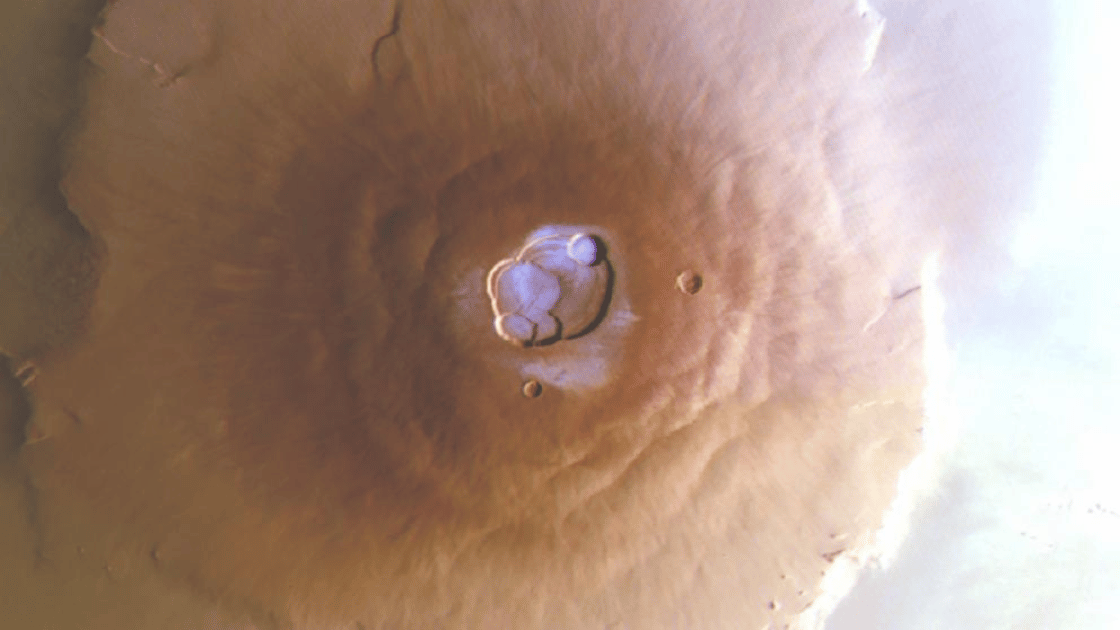150,000 Ton Sheet of Water Frost Discovered Near Mars Equator
In an area that is considered tropical, water frost has been found on Mars atop several volcanoes along the equator. Finding water on Mars in this area is unusual because of the thin atmosphere and robust sunshine that keeps the temperatures hot.
The frost on the Mars volcanoes appears around sunrise and then evaporates in the sunlight.
This layer of frost is about as thick as a single human hair. The area of frost is comprised of an estimated 150,000 tons of water which is enough to fill about 60 Olympic sized swimming pools.
The volcanoes—the Olympus, Ascraeus, Pavonis, and Arsia Mons—are the tallest in the solar system. The Olympus Mons, for example, is three times taller than Mount Everest and roughly the size of the state of Arizona. It has about a 5% incline which would make it theoretically easy to climb.
How does frost form on Mars?
Scientists believe the frost is formed when the air above the volcanoes circulate in such an odd way that it creates a microclimate allowing for the formation of frost. According to scientist Nicolas Thomas, “Winds travel up the slopes of the mountains, bringing relatively moist air from near the surface up to higher altitudes, where it condenses and settles as frost.”
Scientists are still unsure as to where the actual water on Mars comes from. The newly discovered frost information can help us better understand the atmosphere of Mars and aid in the search to find signs of other life.
The discovery was made by the European Space Agency’s ExoMars Trace Gas Orbiter and Mars Express missions. They were able to make this discovery due to the unique nature that their Mars orbiters can orbit at anytime while other orbiters from different agencies are synchronised to the Sun and can only make observations in the afternoon.
Read the official press release here >> https://www.esa.int/Science_Exploration/Space_Science/Mars_Express/Frosty_volcanoes_discovered_in_Mars_s_tropics#:~:text=ESA’s%20ExoMars%20and%20Mars%20Express,but%20in%20the%20Solar%20System






